4 Ways Board Games Help At-Risk Children Grow

Since we write about family board game topics, people around the world often share with us the positive impact board games have with their own families.
Yet, the good influence from board games isn’t found only in families playing together.
Recently we heard from a father in Canada who told us about the many benefits he’s witnessed in the lives of “at-risk” children he works. It’s such a good story, we asked if he wouldn’t mind sharing it with visitors to our website.
Here’s what he’s discovered about the positive impact board games can have on youth:

For the last ten years, I’ve had the privilege of working with “at-risk” children through a non-profit charity. Most of the kids I work with are from inner city areas or are in Children’s Aid. They are surrounded by violence, drugs, and abuse and they also usually live in poverty.
In trying to connect with these kids, I’ve used a variety of approaches such sports, crafts, movies, and field trips. But I’ve found that one of the most effective and enjoyable approaches has been the use of BOARD GAMES!
Many of the kids would spend hours playing board games if we let them (and sometimes we do!). This was a wonderful discovery for myself, and fellow staff members and volunteers since many of us love board games ourselves. Integrating a hobby we love with teaching these kids has been a joy.
In addition, we’ve found that being intentional in teaching kids through the use of board games, allows us to teach them so many important life lessons.
I’ll highlight a few of the common challenges kids face today and how teaching through board games can help them grow.
Challenge #1: Instant Gratification
Growing up I remember hearing that my generation was the microwave generation. We wanted things fast!
As if that wasn’t fast enough, today’s generation wants everything instantly!
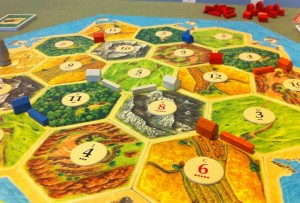
Nobody wants to wait anymore.
At-risk kids don’t often see a future for themselves so they decide to spend their money now and not worry about the future.
Playing strategy board games like Settlers of Catan and Small World has been a great way to help kids learn to plan ahead.
With a little guidance, we are able to show them how decisions made in “the now” will impact their opportunities in the future. Board games can help them think long-term instead of short-term.
Challenge #2: Every Man for Himself
We live in such an individualized society it often feels like everybody cares only about himself or herself. Everyone seems to think they know better than everybody else. This is a characteristic I frequently see in the inner city since everyone is just struggling to survive.
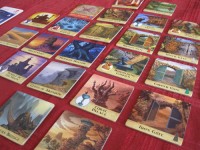
A couple years ago, I introduced cooperative board games to some of the kids we work with. The kids immediately loved games such as Forbidden Island, Break the Safe, and most recently, Sentinels of the Multiverse.
However, that’s not to say there hasn’t been any tension. In the beginning, I really had to help facilitate a lot of the discussion and group decision-making. It took time for the kids to begin to listen to each other, communicate in a way others would understand, and to value each other’s ideas and opinions.
It took time. And there were still bummed when they lost. But what a celebration they had when they won as a team!
They learned to think a little less about “ME” and more about “WE”.
Challenge #3: Lack of Imagination
Like most kids today, I find the primary, and in many cases, the only type of gaming at-risk kids are used to interacting with requires electricity and a screen!
The kids I know have at least one gaming system, and in some case all of the “BIG 3” (not even including their handheld devices).
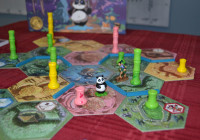
There are so many interesting story lines and high-definition graphics in video games that very little is left up to the imagination.
But when we can engage a child in a board game that immerses them in fantasy world like King of Tokyo, Smash Up, or Takenoko, it helps spark their imagination. It helps kids begin to think and imagine on a level they’re not accustomed to, which makes a huge difference in their lives.
An “escape” with friends in the physical realm is much more stimulating than an escape by yourself in front of a screen.
Challenge #4: Life’s Not Fair
The last challenge I often encounter is helping kids deal with life not being fair.
As much as we would like for life to be fair, it isn’t. This is a lesson I’m even working through with my eight-year-old son. He often plays board games well above his age level and often beats me at them.
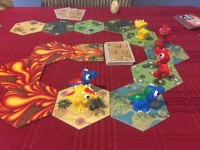
How many times have you played a game and thought you had a solid lead only to finish in last place?
How many times have you been doing poorly in a game and you thought all was lost when suddenly you got a lucky break that turned the game in your favor?
The swing in fortune is a great opportunity to teach kids to keep working hard when they’re ahead and to not give up when they’re behind because you never know what’s around the corner.
I also try to help kids (including my own) learn that even better than winning a game is becoming the kind of person that people would want to win and lose with.
I love the social dynamic that board games create. I love the way playing board games sparks discussion, opens doors, and builds relationships with people in a way no other medium can.
I especially love that I can use something I enjoy doing, to help someone else grow. You just have to remember to be intentional about it.
I know board games aren’t going to save the world, but if it can help a child begin to think in ways they’ve never thought before, and begin to dream a little, I’ll keep playing with and teaching them.
— Ivhan

ABOUT IVHAN
Ivhan has been working with kids and youth in a variety of capacities for over twenty years. He currently serves as the Provincial Director of Child Evangelism Fellowship of Ontario, and resides in Brantford, Ontario.
He’s blessed with a beautiful wife and three kids who all enjoy playing board games (except the 4 month old, but she’ll get there).
For more information on the ministry he serves with check out www.cefontario.org.


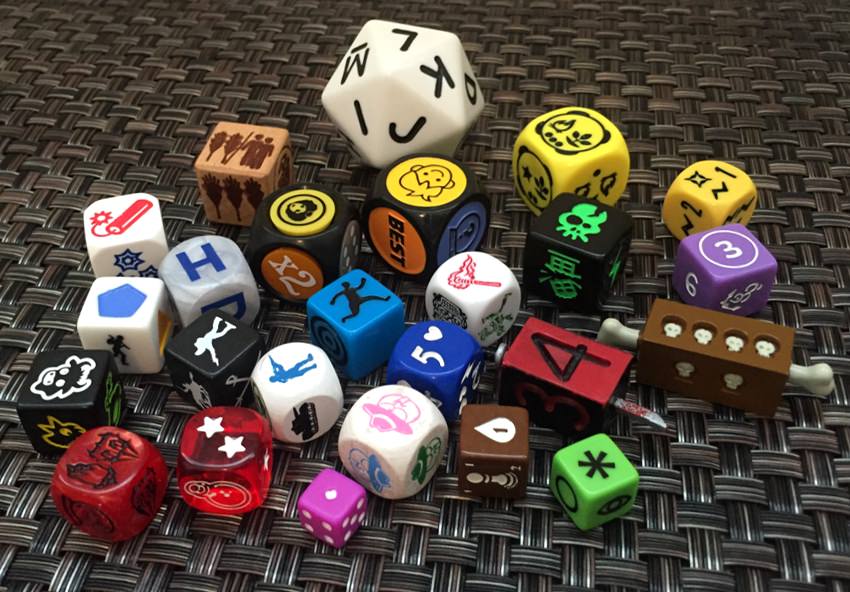
Great read! Thanks for sharing this story.
Great article! I love board games, and this article (which so clearly articulates things I intuit but haven’t put into words) makes me love them even more. Thank you for writing it.